7 things an expert wants you to know about choosing Alzheimer's care
Take care of your family—and yourself in the process.

Alzheimer’s disease affects many more people than just those diagnosed; it changes how entire families function. Though there is no exact statistic available, it's estimated that about 5.7 million Americans may have the form of dementia. In fact, it is the most common form; the Alzheimer's Association notes it accounts for 60 to 80 percent of all dementia cases. Medical needs and everyday care of loved ones with the disease can become overwhelming and eventually, it may even be beyond your capacity.
According to Arun S. Rao, MD, FACP, AGSF, Medical Director of LIFE St. Mary in Langhorne, Pennsylvania, the time to start planning for the future is as soon as you know the diagnosis. Then, you can determine the level of care as you move forward, and where you can get your loved one the help they need.
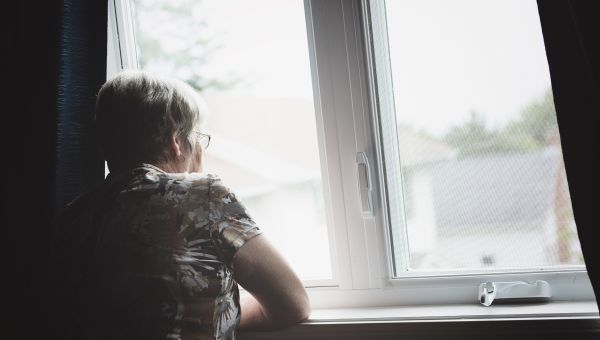
Know the Signs and Signals
Dr. Rao assures that it is never too late to get help, but knowing what to look out for can help you get a diagnosis and assemble a healthcare team as early as possible. One primary sign is short-term memory loss, though it may present in a subtler way.
“Some of the earliest manifestations in people are difficulty managing their finances, misplacing things when they normally didn't, resulting in loved ones finding things in weird places or sometimes being accused of stealing items,” says Dr. Rao. “There might also be a change in personality with loved ones noting the person to be more apathetic and behaving like they're depressed.”
If you notice a loved one having difficulty managing their Instrumental Activities of Daily Living (IADLs)—or skills that allow them to live independently—then you should contact a primary care provider to check for dementia and provide a possible diagnosis.
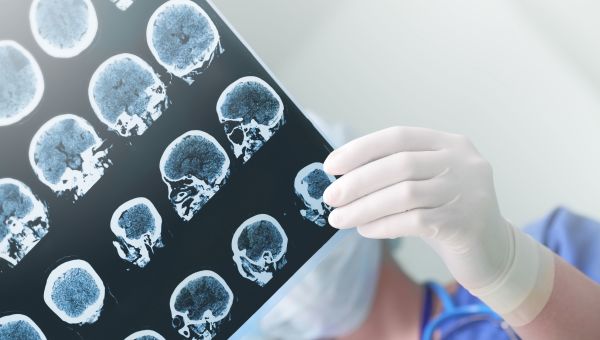
Get Screening Tests and a Diagnosis
In order to get a diagnosis, screening tests need to be performed that can detail cognitive, physical and behavioral changes. Dr. Rao notes that you can reach out to either a primary care provider, neurologist or a psychiatrist to have testing done that looks for deficits suggestive of dementia.
“The option of neuropsychological testing might also need to be considered if the presentation is confusing; symptoms are developing and progressing very rapidly; the person is very young; or if this might represent some other process," he adds. “It's a more intense level of psychological screens that can pinpoint the areas of cognitive deficit and what the pattern seems to fit.”
If dementia—and specifically Alzheimer’s—is indicated, you can begin to assemble a team that will help assess the level of care needed.

Assemble Your Team
“As in anything with geriatrics, dementia is not something that you can handle with one provider,” urges Dr. Rao. “You're going to need multiple different people involved.”
Once Alzheimer’s is confirmed, Dr. Rao recommends you contact the following individuals:
- The patient’s physicians
- Social workers
- A financial planner
- An elder law attorney
With these resources, you can connect with community agencies to establish what resources are available and, should the dementia be in its early stages, help the patient make important decisions about the future such as living wills and powers of attorney. The ultimate goal is to assess what their day-to-day needs are and pool together resources to get the proper care.
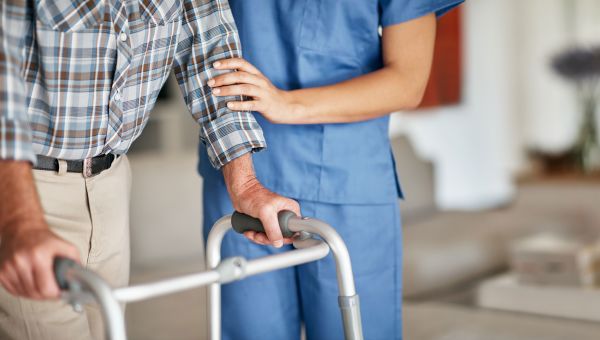
Figure Out the Level of Care Needed
Understanding what limitations your loved one may be experiencing due to Alzheimer’s is the best way to get the proper level of care, whether it be in-home or an assisted living facility. Discussing any functional issues that need to be addressed with the physician and care team can help you evaluate any safety concerns and choose the best living option. This may need to be revisited again throughout treatment as the disease progresses.
“You need to get a sense of what they are able to do for themselves and what they need help doing for themselves,” explains Dr. Rao. “Is it dressing or bathing or showering, or is it higher-level things like medication management and help with finances? You need to find out what the specific deficits and problems are and start planning around those problems.”
From there you can decide whether or not your loved one needs in-home skilled nursing care, or an independent or assisted living facility.

Use Your Community Resources
Because each patient’s needs and situation will be unique, once you determine the level of care needed you can use resources to find the best care possible. It may seem overwhelming to choose among so many provider options, but that is where taking advantage of community really comes into play.
“You want to reach out to your county's Area Agency on Aging and the Alzheimer’s Association websites,” advises Dr. Rao. “They will provide you guidance, referrals and resources to community agencies.”
Dr. Rao stresses the importance of using your county agencies that have vetted and reviewed local care facilities and agencies. Looking at the facilities' length of operation, primary mission and turnover rates will give you a better picture of whether they will be the right provider for your loved one.
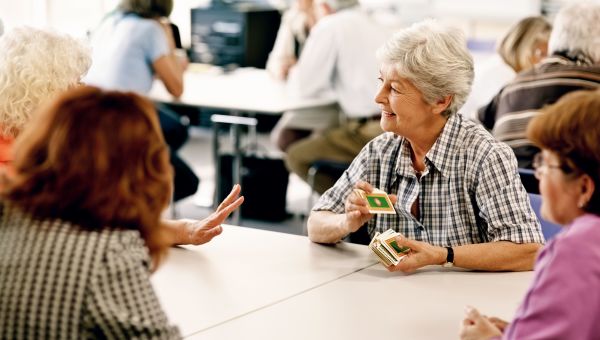
Get and Stay Connected
When reaching out to your community resources, it is especially important to look at it as a long-term relationship, as care needs may change as the Alzheimer’s develops. Because of this, staying connected to both local and national groups should be a priority. Dr. Rao specifically notes the Alzheimer’s Association, which has both in-person and online support groups so you can build your network.
“You're going to need to do that to trade stories and realize problems that might lie ahead of you—problems that you're encountering that other people have encountered and know what to do with,” he adds. “It's just very important to get socially connected.”
Not only should you stay socially connected, but keeping your loved one active can actually benefit them as they receive care. Maintaining social engagement and physical activity has been proven to help dementia patients, Dr. Rao says. He suggests looking for day centers or venues where your loved one can go for socialization and recreation.
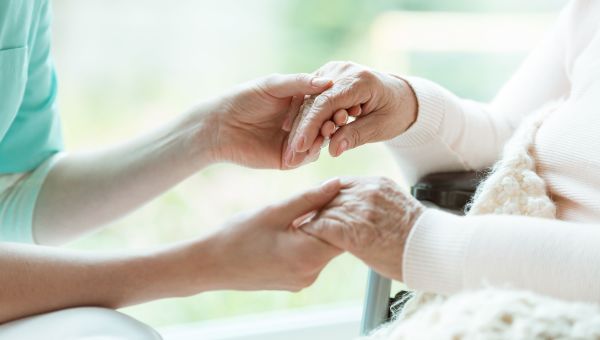
Seek Further Guidance
If you’re still in need of resources and further guidance, these key agencies and resources can assist you on the journey:
- Alzheimer’s and Dementia Caregiver Center (Alzheimer’s Association)
- Alzheimer’s Caregiving (National Institute on Aging)
- Caregiving Resources (Alzheimer’s Foundation of America)
- Alzheimer’s Disease and Healthy Aging (Centers for Disease Control and Prevention)
More On


video

article


video


video


video
